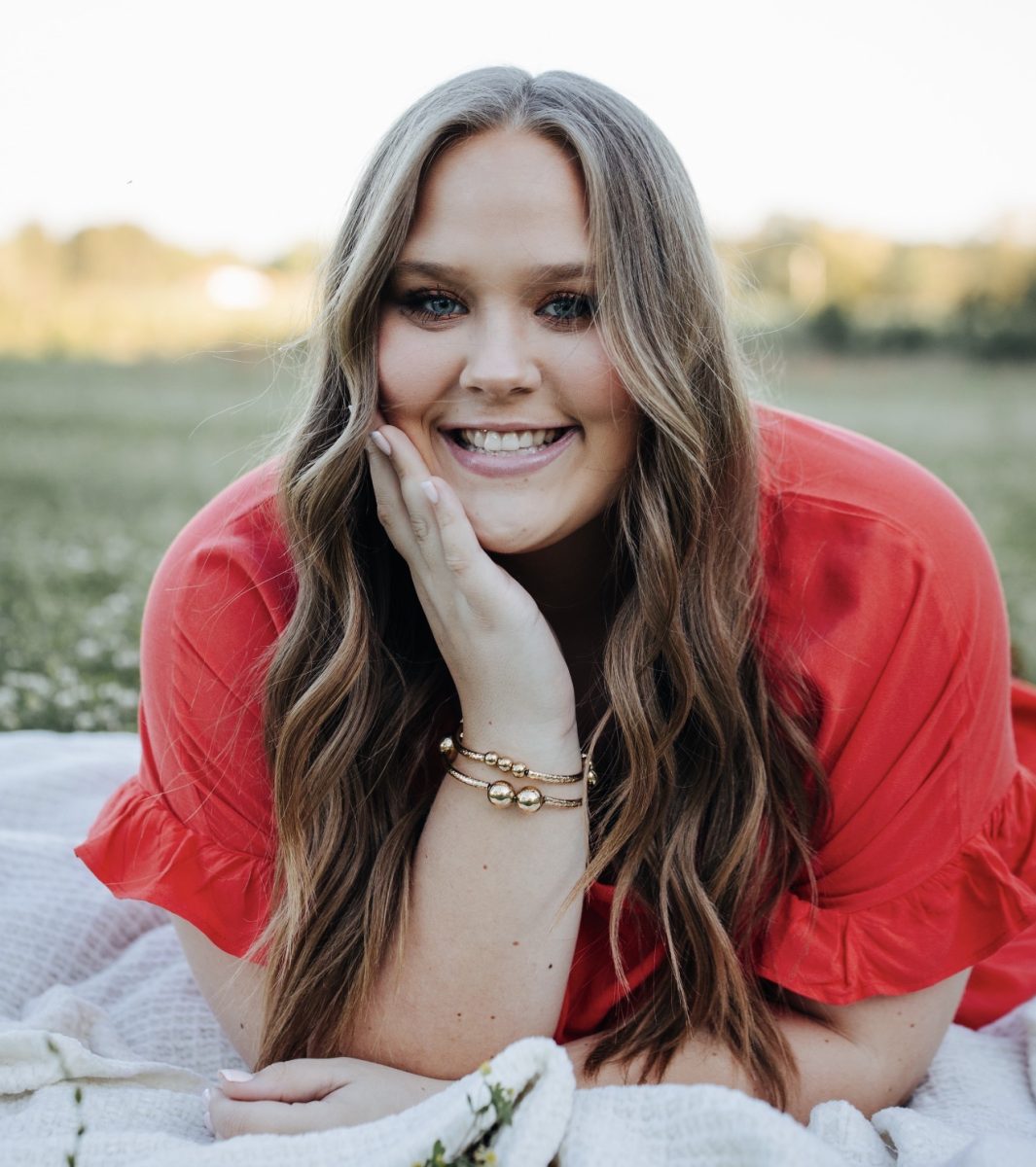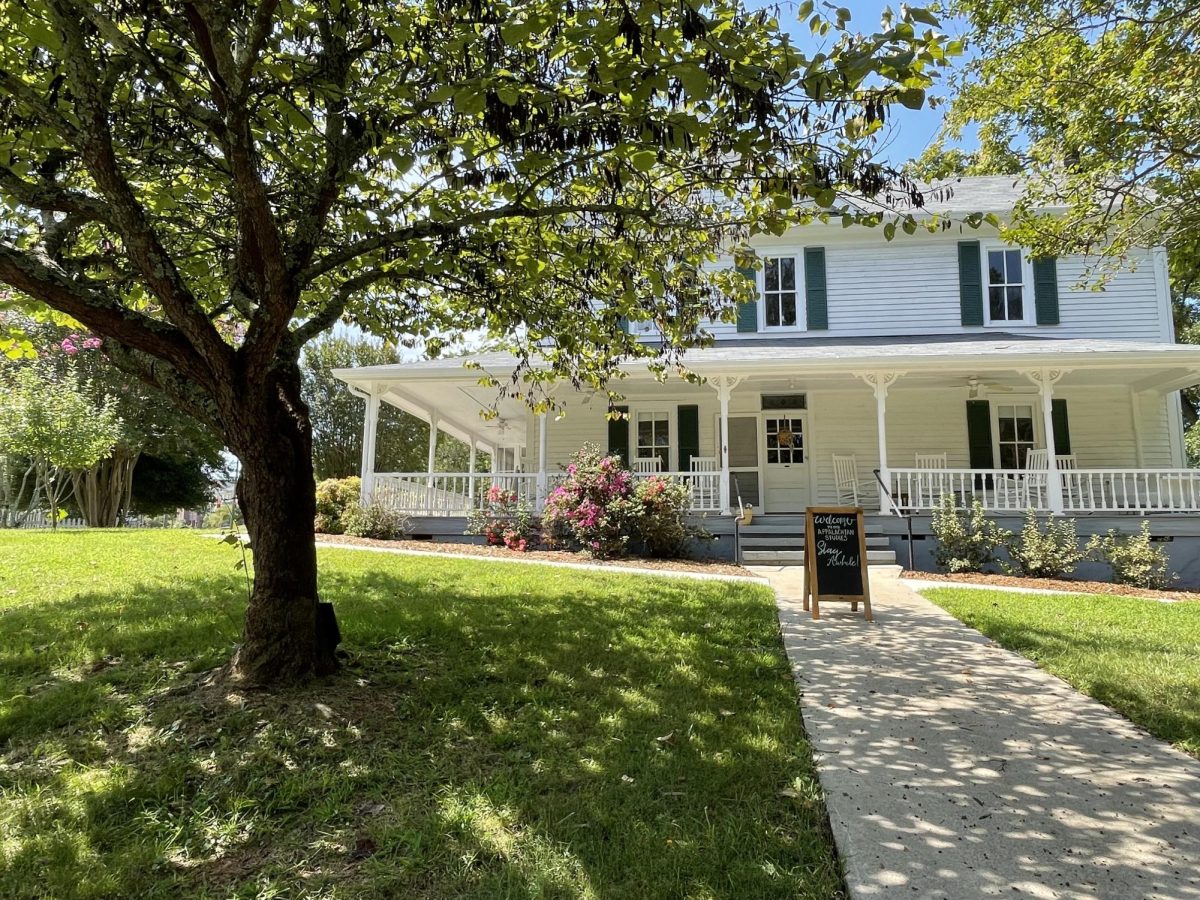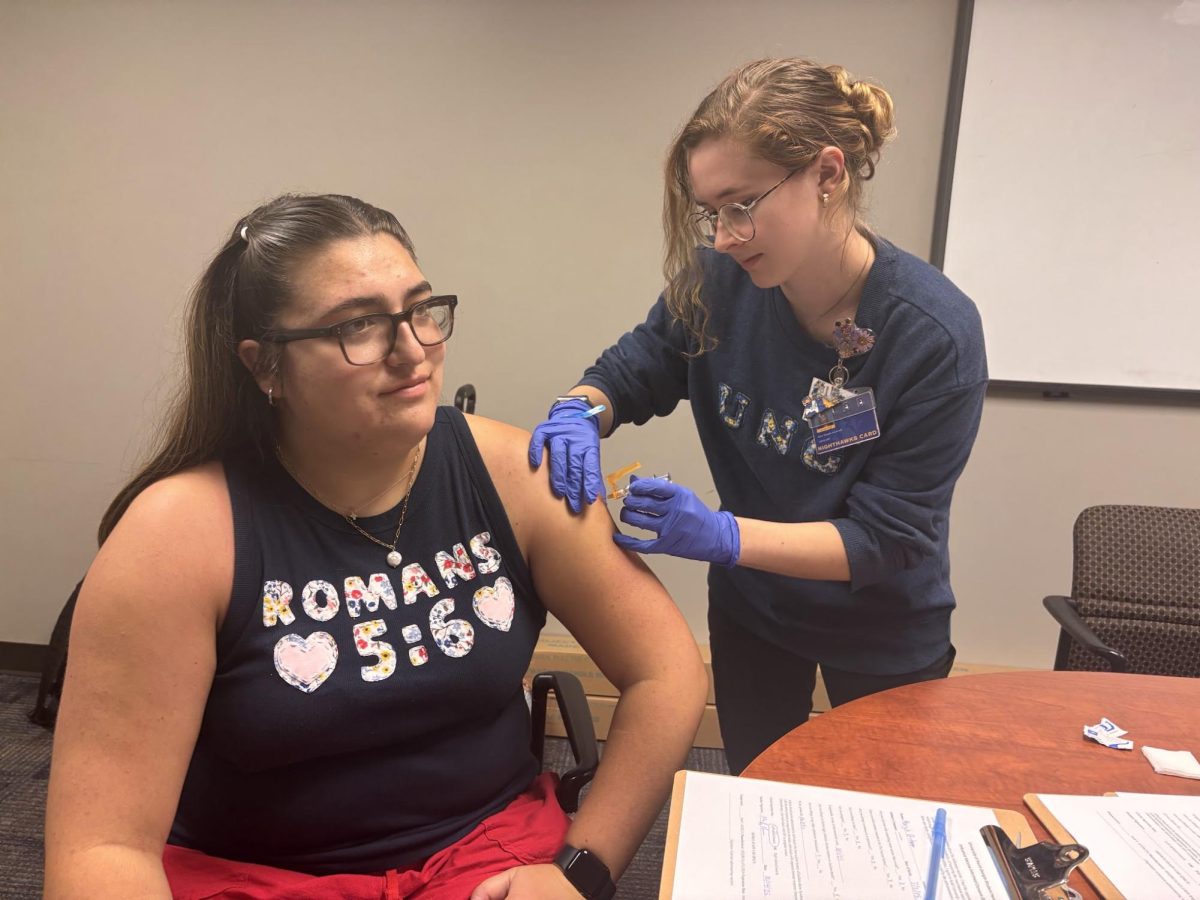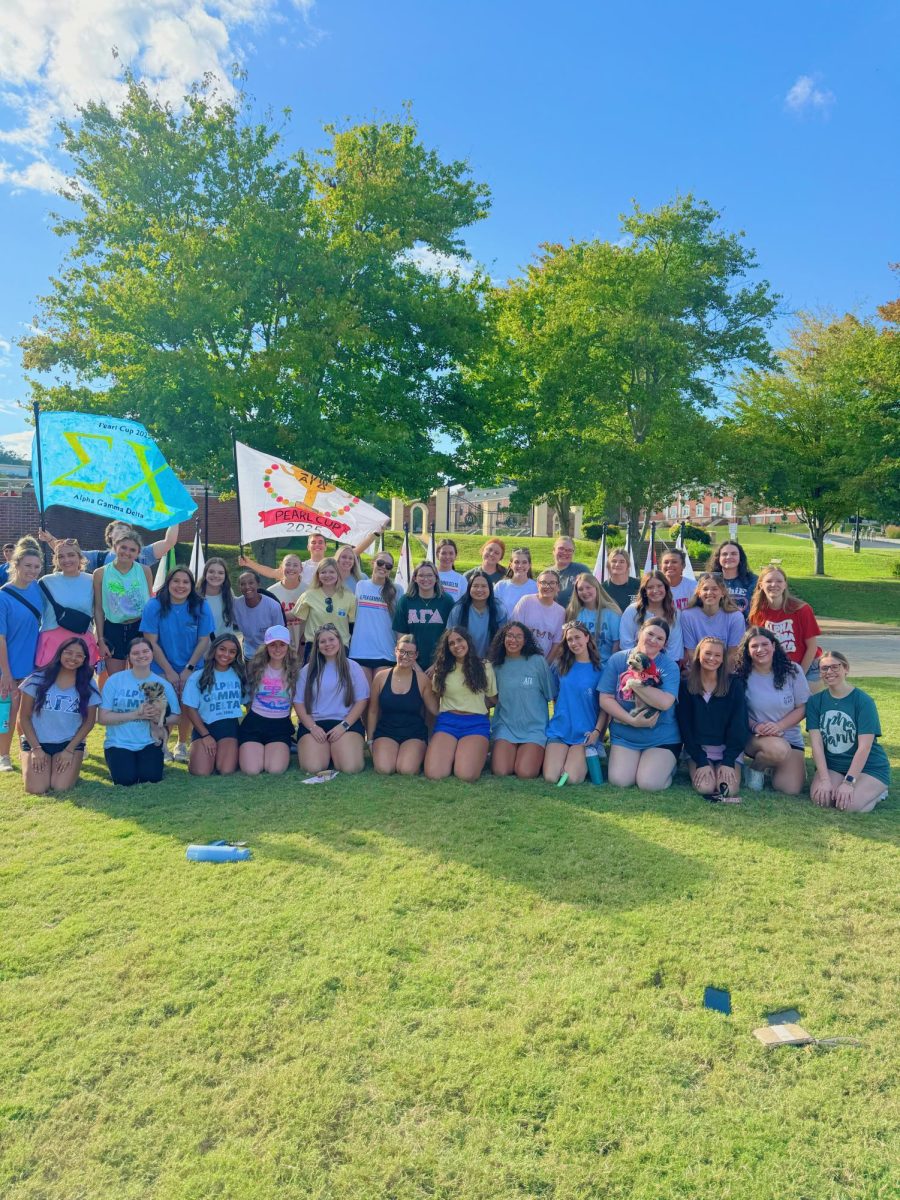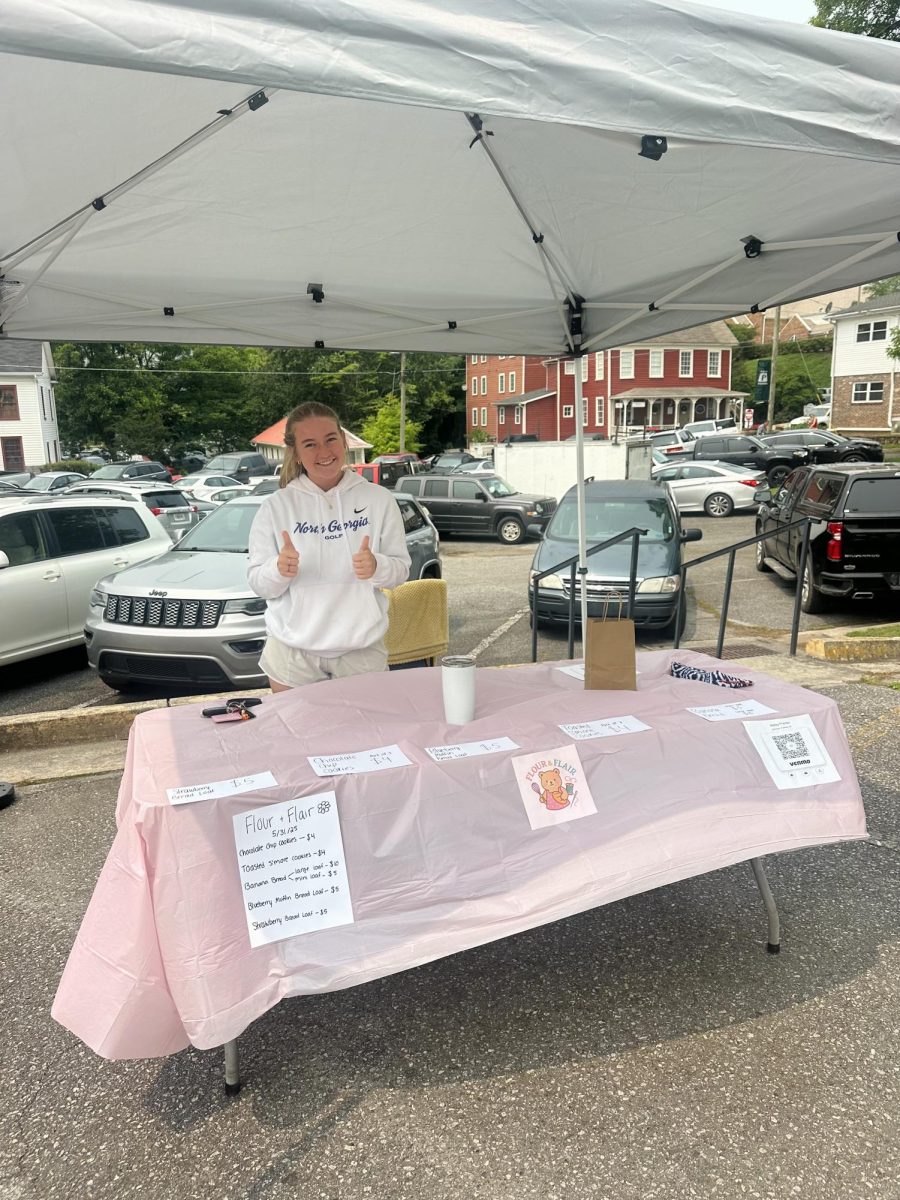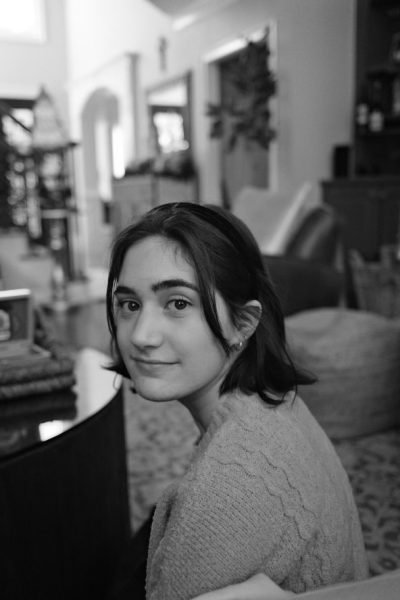The Vickery House, home to the Appalachian Studies Center, has planted roots in any way that it can.
The ASC serves as Georgia’s sole Appalachian center, an umbrella organization dedicated to educating, promoting and adding value to Appalachian communities through campus and local collaboration. It strives to achieve a “town and gown” balance by fostering mutually beneficial relationships and numerous initiatives that connect the university with the surrounding Appalachian region.
ASC’s founding director, Dr. Alice V. Sampson-Cordle, was the driving force behind getting the program off the ground. Sampson, described by current director Kelly West as “an amazing human,” not only wrote the initial Appalachian Regional Commission grant herself but also pushed for the Vickery House to become the center’s permanent home.
“She was a spitfire,” West recalled with a smile. “She always had something going on, always full of life. She used to say, ‘I work to live, I don’t live to work.’ “You never knew what she’d pull out… You just never knew, you know? She was just always the life of the party. And just a fun loving human.”
Sampson’s influence on West was deeply personal. Before returning to academia, West was running a cabinet shop in Dahlonega. Sampson hired her to design some cabinetry, and during that chance connection, she urged West to pursue a master’s degree. “She became my faculty mentor, and that changed everything,” West said.
After Sampson retired in 2012, her longtime assistant director, Roseanne Kent, took over as director. A storyteller by trade, Kent infused the ASC with a strong narrative focus, producing “planting with the signs” videos and leading storytelling initiatives that connected the region’s heritage to its land. She remained director until 2023, leaving many of the center’s programs in limbo.
In early 2024, Kelly West stepped in as the ASC’s third director. But she was hardly a newcomer; she had served on the center’s Executive Advisory Board from 2003 to 2012, working side by side with Sampson during its formative years. Now, West is guiding the ASC into what she calls a “rekindling phase,” balancing her directorship with roles as UNG’s Summer Honors director and a biology instructor.
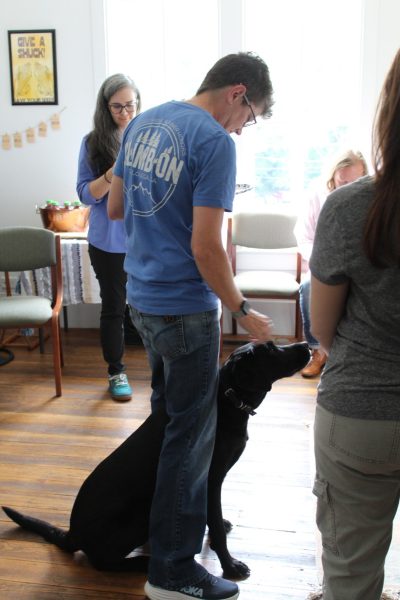
West’s vision is grounded in her lived experience. Growing up in Dahlonega and later working in the cabinet industry gave her a firsthand perspective on both the richness and the struggles of Appalachian life. “I never wanted the university to be seen as a savior,” she explained. “This is about collaboration, not elitism.”
That spirit of collaboration, she says, is already taking hold.
“It’s like palpable where you can feel that like everyone’s buying in and I love that. Like I love that synergistic feel where like I am making that difference. We are making that difference. Together we can make a bigger, you know, that kind of thing,” — Kelly West, Director of the Appalachian Studies Center
Alongside West is assistant director Dr. Esther Morgan-Ellis, a music historian who oversees the ASC’s music and art initiatives, including Appalachian Jams, Sacred Harp Singing, and partnerships with local festivals.
For West, leading the ASC is more than just a job; it’s personal. “When I first graduated undergrad, I wanted to get away,” she admitted. “It felt like everyone here knew everyone’s business. But now, I’ve realized how much I love that, because it means people care. This is a community that cares—and that means everything.”
She sees the ASC as an ideal place to create “light bulb moments” and foster long-lasting connections between students and the university, which can lead to lifelong learning and alumni support. Her philosophy, as inspired by a colleague, is “If you can’t whistle to work, you shouldn’t be going,” reflecting her joy in her work. She aims to cultivate an environment where everyone is invested and feels a sense of collective impact. Eventually, she hopes her role at the ASC will become full-time, allowing her to further maximize its potential.
The ASC operates several initiatives, often with overlapping missions but distinct focuses, all aimed at educating and adding value to the people of Appalachia through community and campus collaboration.
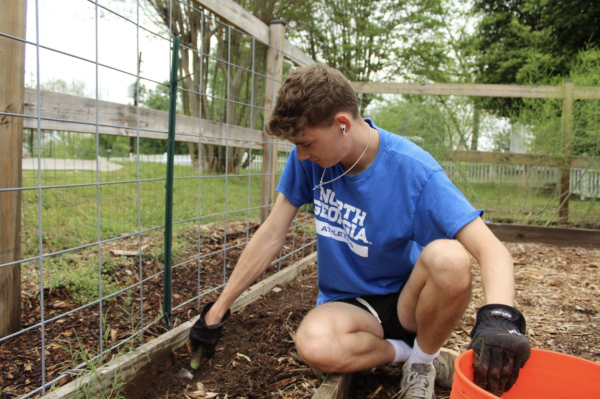
ASC’s Hometown Harvest, also known as the Vickery Gardens, focuses on food sustainability and soil stability. ASC took inspiration from the “Victory Gardens” of World War II. It also serves as a community garden. Hometown Harvest is led by Dr. David Patterson, who is an associate professor of Biology at the University of North Georgia.
The garden was started in 2007 when the Victory House was acquired. It involves community collaboration with local Lumpkin County schools, working with their nutrition director to provide fresh produce for school menus, such as three-bean salads or salad bar tomatoes. It also includes a K-12 “Seeds of Tradition” contest, where students interview elders about food traditions and create art. The initiative partners with the campus veterans’ group for garden therapy and grant opportunities. Produce like tomatoes, asparagus, cucumbers, and beans are grown. Food is advocated for students, faculty and staff to take home, with surplus donated to local food banks. A key aspect is saving heirloom seeds from the harvest.
This leads to Saving Appalachian Gardens and Seeds. SAGAS is one of ASC’s oldest initiatives, dating back to its inception in 2003-2004, and focuses on preserving heirloom seeds passed down through generations. Throughout the years, West said SAGAS has “died out,” but she is in the midst of reviving the program. She has recently gotten new recording equipment to record the stories of people and their seeds, potentially making these stories accessible via QR codes in the garden.
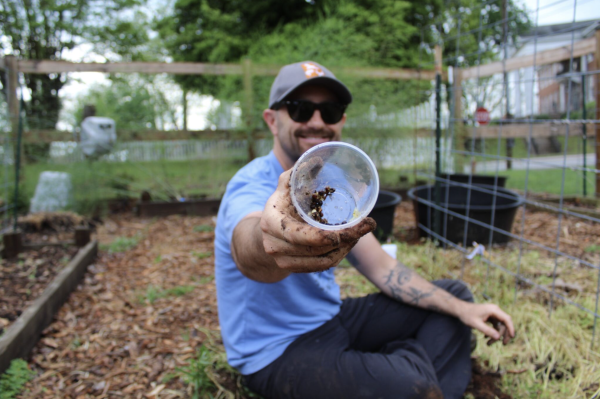
The initiative involves collecting heirloom seeds from the area (defined as seeds never commercially sold and passed down for at least five generations). When enough seeds are available, they are distributed to community members with the promise that they will be planted to avoid hybridization and that new seeds will be returned to the ASC.
The ASC is acquiring new heirloom seed stamps and plans to partner with a local store, “Gus and Blooms,” to sell seeds accompanied by their stories.
Critters and Blooms, ASC’s newest initiative, is designed to promote wildlife education and create wildlife education spaces.
It involves a partnership with the College of Education and the Department of Biology to develop interactive gardens and walking trails around campus. Plans include setting up bat and bird boxes to encourage bird watching.
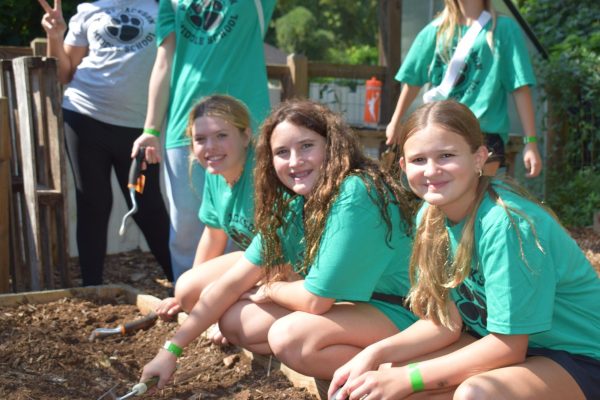
K-12 Field Trips
Overlapping with Critters and Blooms, the K-12 Field Trips aim to bring K-12 students, especially first-generation college students from rural areas, to the Vickery House to have positive experiences on a college campus, reducing barriers to higher education.
Field trips are designed in partnership with UNG’s education department, with pre-service teachers gaining program application hours by running the trips and in-service teachers helping design curriculum content. Example activities include rotations focused on life cycles, water, earthworms, compost, and scavenger hunts around the property, including the Gold Rush cabin. The ASC is developing a brochure outlining its curriculum offerings.
The ASC is actively working to increase the number of field trips and incorporate more interactive signage around the property.
Education Committee (Lifelong Learners/Certificate Programs)
The Education Committee focuses on promoting broader education about Appalachia for lifelong learners.
It explores offering certificate programs in various aspects of Appalachia, such as history, geography, ecology, or for specific professions like business or education. Craft workshops, such as stained glass and woodworking, are also incorporated.
The ASC collaborates with a downtown business called “Wellmade” for many of these workshops, but it aims for a broader reach and eventually hopes to offer free or reduced-cost options for students through an endowment. The “Evergreen” professional and continuing education group is also a potential partner for a membership-based program.
Research Initiative
To serve as a clearinghouse for all research related to Appalachia conducted at UNG and to promote new research that benefits the region.
The initiative aims to maintain a continuous list of dissertations and student projects, promote research that helps move Appalachia forward (e.g., addressing economic disparity, utilizing tools like AI), and encourage student involvement in Appalachian research by attending conferences like those of the Appalachian Regional Commission and Appalachian Studies Association.
The group is working to compile existing research and promote student engagement. The director emphasizes capitalizing on UNG’s unique position as the only Appalachian Study Center in Georgia.
Victory House Committee
This committee is dedicated to making the Victory House spaces usable, informative, and engaging.
Efforts include making the house more welcoming by replacing dilapidated, “officy” furniture with comfortable seating for meetings and study. The committee works on developing interactive signage throughout the house and property to share its history, its connection to UNG, and its past residents. They are digitizing the detailed ledgers of Elias Vickery, a former professor who lived there, to make historical information accessible. The committee is also partnering with the North Georgia History Center to acquire relevant artifacts, such as a glass mousetrap mentioned in Vickery’s extremely detailed ledgers. Plans include creating scannable information in each room and an interactive online digital tour for remote visitors. They are also seeking folk art to display.
Long-term goals include transforming the outdoor space into an event venue with a stage and potentially a pavilion with bathrooms for large events like contra dancing or jam sessions, which currently only fit about 20 people in an indoor room.
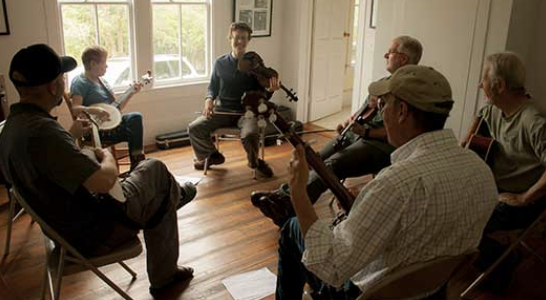
Music and Art Initiative
To celebrate and promote Appalachian music and art.
This initiative is overseen by the Assistant Director, Dr. Esther Morgan Ellis, a music historian. It includes art workshops (e.g., ceramic stepping stones for the garden) and regular music events like Appalachian Jams, “Pickin’ Porch,” and Sacred Harp.
“You can show up with basically no skills at all, and the group will welcome you and will help you be successful.” Dr. Morgan Ellis said. “With sacred harp singing, it’s designed so you can show up not knowing anything about singing or reading music and we will set you up to be successful. You’re still welcome. And same thing with the Appalachian jam.”
The music and art initiative actively participates in local festivals like the Bear on the Square Festival, promoting Appalachian music and crafts. It also encourages student research in Appalachian music, with some students presenting their work at conferences. The ASC collaborates with the Georgia Pick and Bow program (a K-12 initiative that has become its own entity) and is starting an adult Pick & Bow program starting the last week of September.
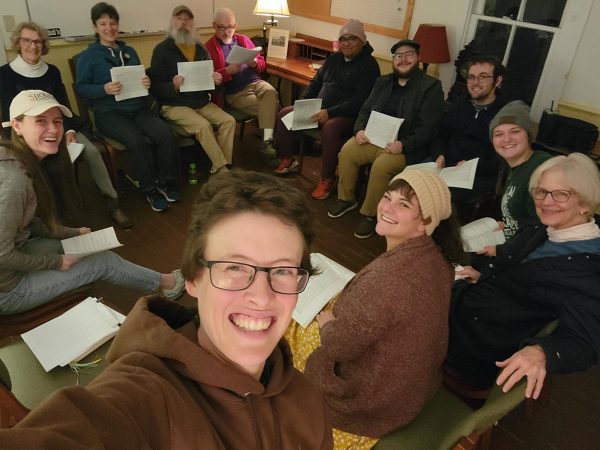
To educate about and restore the historic Mount Hope Cemetery in Dahlonega, the Mount Hope Cemetery Project, which the ASC is hoping to reinstate, involves partnering with the Delaware Cemetery Committee to clean and restore old grave markers. Using radar sonar sensing technology, they discovered an unmarked section of graves adjacent to the African-American section, believed to be part of it, and have placed temporary markers.
The ASC hopes to develop a system for honoring those buried in the unmarked section and plans to feature a “Mount Hope of the Month” in their newsletters, with history students researching and sharing stories of individuals buried there. The director sees it as an educational tool to connect people to the history and contributions of those who lived in Dahlonega.
The ASC has several events planned, aiming to increase engagement with both campus and community members:
K-12 Field Trip: A middle school group is already scheduled to visit for field trips over three different days in September.
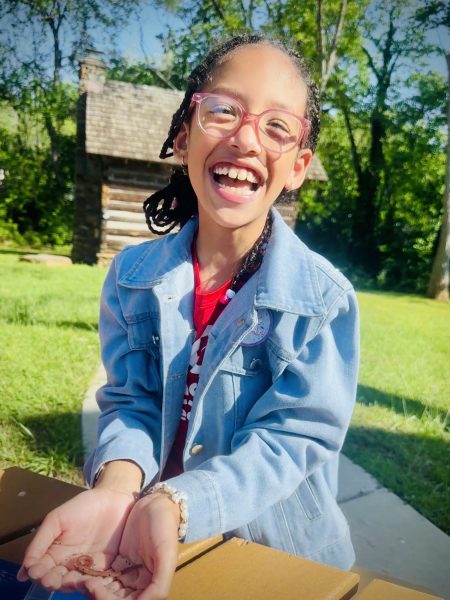
Artist Talk – Win Crannell – A Wealth of Experience: Sept. 25, 9:30 a.m. to 10:45 a.m. Join UNG Visual Arts and the ASC for a breakfast of coffee, tea, and pastries and a talk by retired professor Win Crannell. Professor Crannell taught art and art history at UNG from 1971 until his retirement in 2000 and remains a working artist in Dahlonega and the UNG community. He will share his life story and how he stays healthy, happy and wealthy by never ceasing to make art.
Dahlonega Discovery Trails Scavenger Hunt: Oct. 15, 10 am-12 pm at the Vickery House. Join the ASC and Vickery Volunteers for the first look at what will be its newest Dahlonega Discovery Trails Scavenger Hunt. This event takes participants to the Dahlonega square and along West Main to Mt. Hope Cemetery. Light refreshments will be served at the Vickery House.
Workshop – Power Carving a Raptor Feather: Oct. 26, 10 a.m. to 5 p.m. These workshops are open to anyone who signs up and are coordinated through a downtown business called “Wellmade.” The workshops cost around $75 per person. The ASC aims to eventually offer free or reduced-cost versions for students through future funding. To find more information on this or to sign up, visit Well Made Good’s & the Grey Fox’s website
Photo Exhibit Reception: On Her Time, In Her View: The personal photography and craft of Dr. Alice V. Sampson-Cordle. Oct. 28, 5 p.m. to 7 p.m., UNG Vickery House. The reception is a celebration of Dr. Alice Sampson’s perspective through photos and artwork displayed throughout the Vickery House.
Sacred Harp Singing: Takes place every other Tuesday and Wednesday night from 6:45 p.m. to 9 p.m. at the Victory House and is free to attend. It is hosted by Dr. Esther Morgan-Ellis. The event is open to anyone, with no fee. To be added to the email list, contact Dr. Morgan-Ellis: [email protected]
Appalachian Jams: These jam sessions are held every Friday from 1 p.m. to 3 p.m. Hosted partially by Ann Singleton, this event requires participants to bring their own instrument to a jam session. The sessions are open to anyone and are free to attend. To be added to the email list, contact Dr. Morgan-Ellis: [email protected]
Adult Pick & Bow: Classes will run eight weeks from the week of Sept. 29 through the week of Nov. 17th. All classes will meet at 6 p.m. on Tuesday or Thursday (your instructor will let you know which night you will be meeting) at the Vickery House. Tuition will be due the first day of class and is $160. Tuition for the class helps fund the K-12 Pick and Bow program.
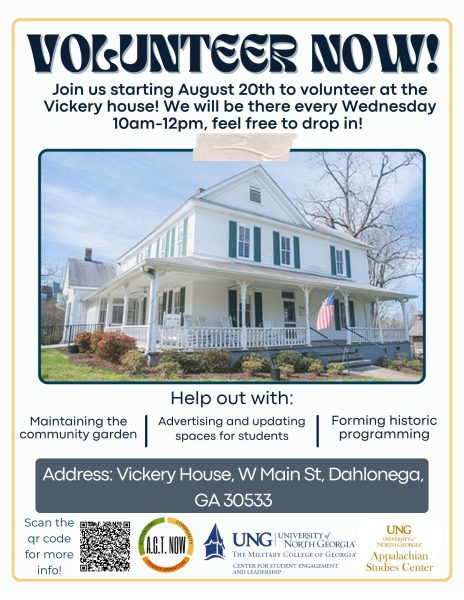
Weekly Service Days: The center offers service days every Wednesday from 10 a.m. to 12 p.m. Students are invited to drop by the Vickery House if they need service hours for a class or just love to volunteer.










